Most adults love to enjoy aromatic and juicy persimmons. This fruit is not only tasty, it is also useful for vision, blood vessels and immunity. But is it possible to pamper this young child with this berry? At what age is it best to introduce a child to persimmon? Is this fruit dangerous for the child's body? How to introduce this berry in the lure?
At what age do persimmons begin to be introduced into the children's menu?
A child up to a year is not given this berry. Most experts generally agree that persimmons should not be offered to children under three years of age. Until this age, the child’s digestive system is not yet mature enough to absorb this fetus.
Not all parents tend to listen to the opinion of experts, some offer persimmons to children at an earlier age (1-2 years). The introduction of this fetus in the diet of crumbs at an early age can lead to problems with the gastrointestinal tract. If the baby already has some pathologies or diseases of the digestive system, it is better to refrain from introducing persimmons into his diet for up to 5 years.
What is the benefit of persimmon?
- Persimmon is rich in carbohydrates, fiber, contains many tannins, organic acids and many other useful compounds;
- In winter, this fruit will replenish the child's body with vitamins and minerals;
- Persimmon helps strengthen blood vessels, stimulates the thyroid gland and the immune system, has a beneficial effect on the kidneys;
- Vitamin A, found in persimmons, improves vision. Vitamin A in the form of beta-carotene is important for growth processes in the children's body;
- This berry will replenish the body with a supply of useful substances - iron, potassium, iodine, manganese, magnesium, calcium;
- Persimmon is a source of vitamin C, due to which the body's resistance to viruses increases, the immune system becomes stronger.
- Rutin and vitamin C in persimmons strengthens the walls of blood vessels and has a positive effect on the immune defense and blood condition;
- Persimmon is a source of natural sugar, so it improves brain function and improves performance;
- Thanks to astringent components, persimmon helps in the treatment of diarrhea.
[adsens]
How can persimmon be dangerous and to whom is it contraindicated?
- The astringent properties of persimmons can be dangerous for the child’s body (if introduced too early in the child’s diet) - this fruit can cause intestinal obstruction;
- Children who are prone to constipation, it is better not to give persimmons, especially if the fruits are not ripe. They have a lot of tannin, a substance that can cause severe constipation in children;
- Persimmon refers to berries that often cause allergic reactions. Children are introduced to this fruit gradually, offering a small bite during breakfast;
- Diabetics should not eat persimmons because of the large amount of carbohydrates that are quickly absorbed by the body;
- Do not eat persimmons with milk at the same time, it can cause loose stools.
In what form are children given persimmons?
Usually this fruit is offered fresh. Persimmon is washed, peeled and cut into pieces. The fruit is also good for making sweet desserts - jelly, fruit salads. Its pulp is used for filling pancakes, casseroles and pies.
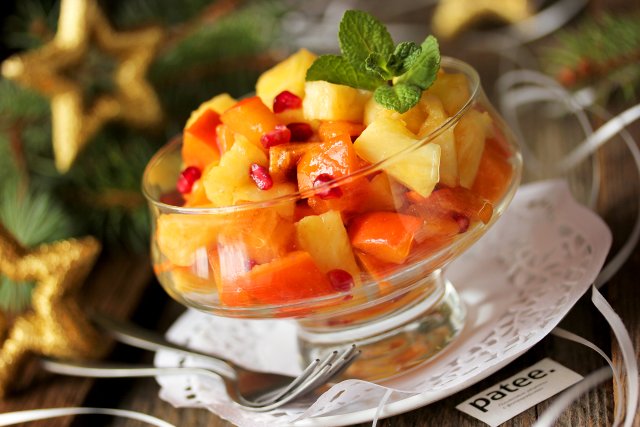
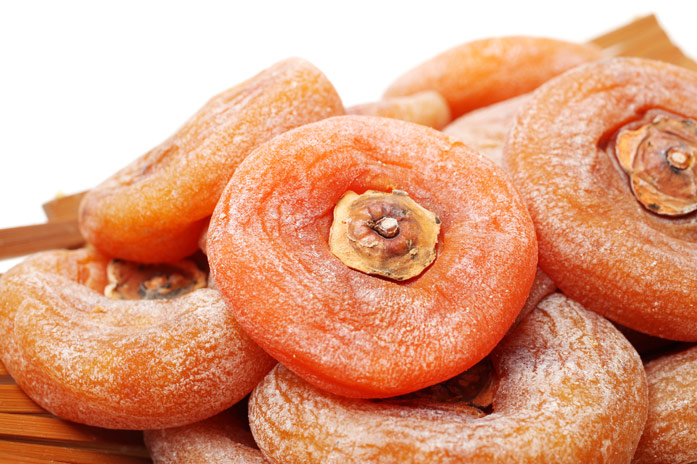
Dried fruits can also be offered to children, although in this form the amount of vitamins is reduced. Dried persimmons also have less tannin, which has an astringent effect.
How to choose a persimmon for a child?
When buying persimmons for a child, choose only ripe berries - they are moderately elastic, smooth, have a uniform orange color, there should be no damage, rotting spots or dark spots on the surface of the persimmon. Do not buy too soft fruits or fruits with dried skin. Treat the child only with persimmon washed and peeled and peeled.
"Fresh food" - How to choose a ripe persimmon
Persimmon Allergy - Be careful
Since persimmon contains a large amount of beta-carotene, as evidenced by the bright orange color of the fruit, it often causes allergies in children. That is why, offering children persimmons for the first time, they give to try a very small piece of fruit in the morning. During the day, you should pay attention to whether allergy symptoms have appeared - rash, redness, itching, swelling in the face, dry cough, runny nose or any other allergy symptom. If you notice at least one of the manifestations of intolerance to the product, remove persimmons from the children's diet. The doctor will prescribe a suitable antihistamine for the child and tell you when you can try this berry again.
We also read:
- At what age can a pear be given to a child? How to make pear puree?
- At what age can cherries be added to a child’s diet? What happens if the baby swallows a bone?
- At what age can peaches be added to a child’s diet
The program “Live Healthy” Persimmon is a berry that “knits”. What is the use of persimmon? How to choose it correctly, how to store, what can be prepared from it?

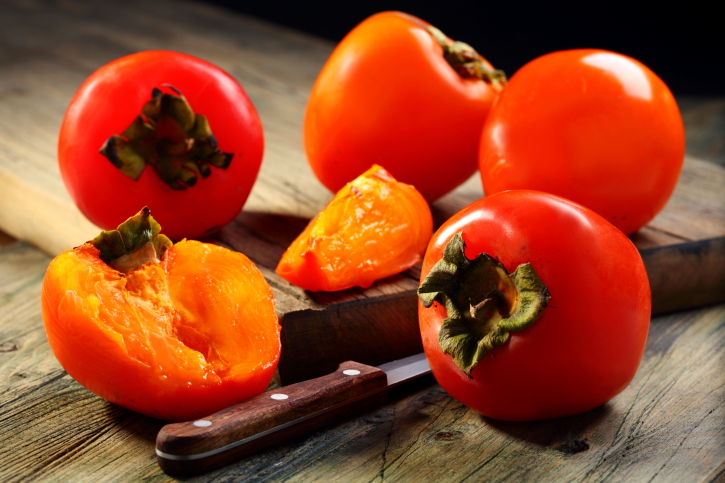
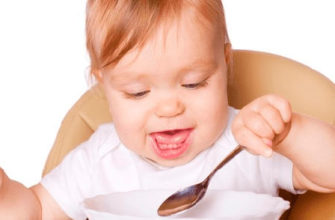

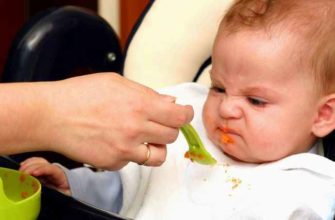
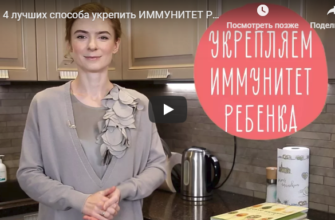
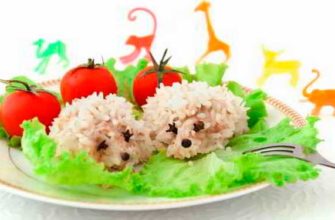


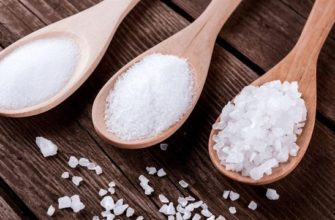
I have an allergic child. We have been tormented since birth. Now she is 1.10. I adhere to the recommendations of pediatricians and do not introduce products ahead of time in the diet. I believe that everything has its time and the child will still have time in his life to try all the products. From fruits, the daughter eats only apples and bananas. She doesn’t even want to try persimmon, she doesn’t even understand this fruit.